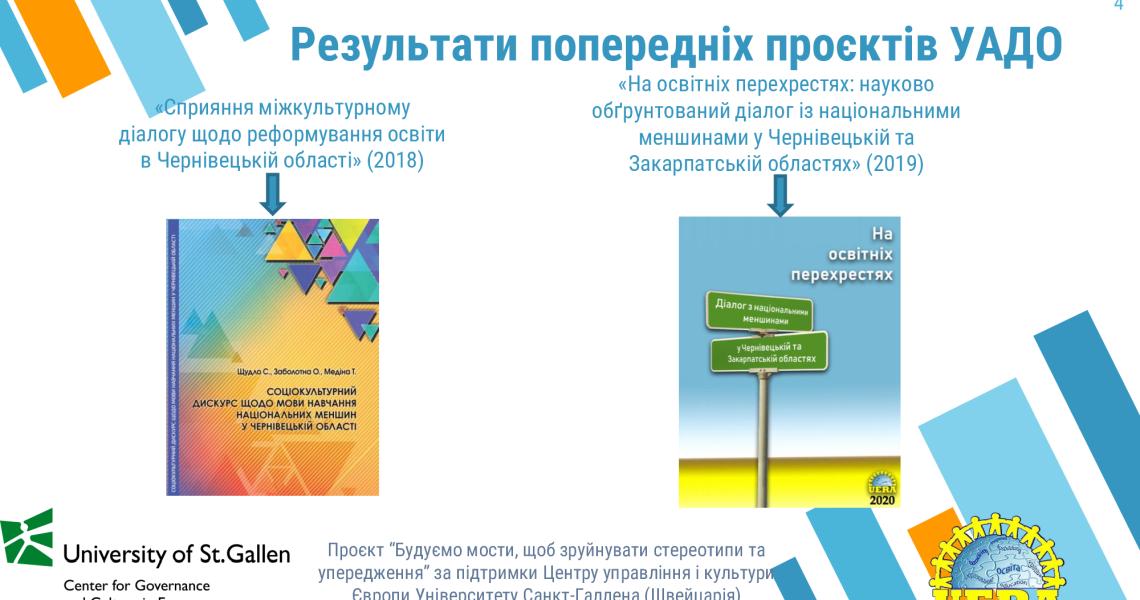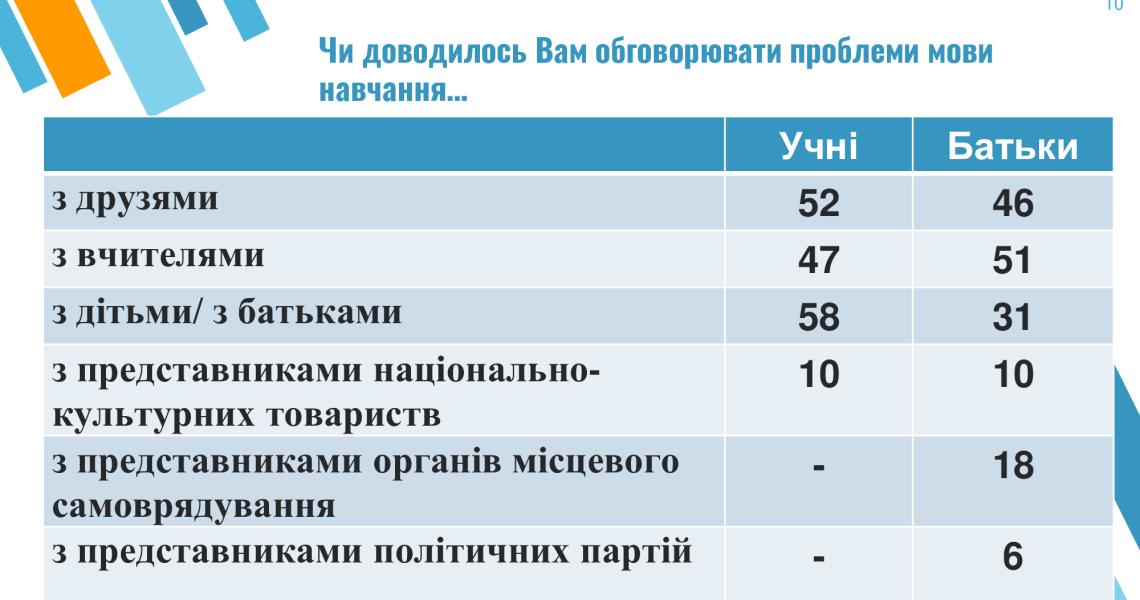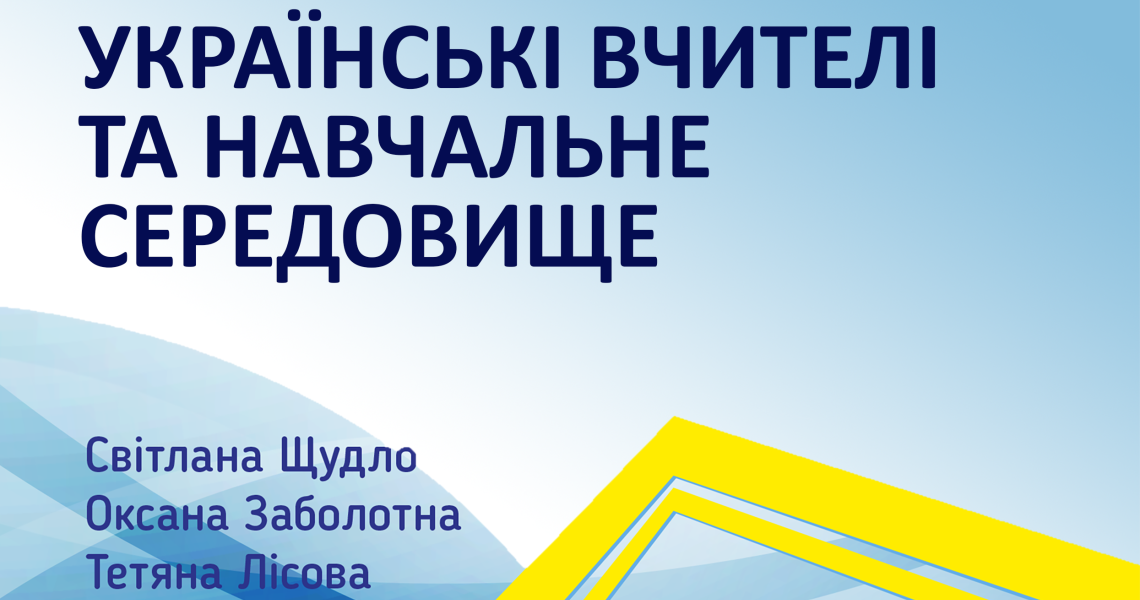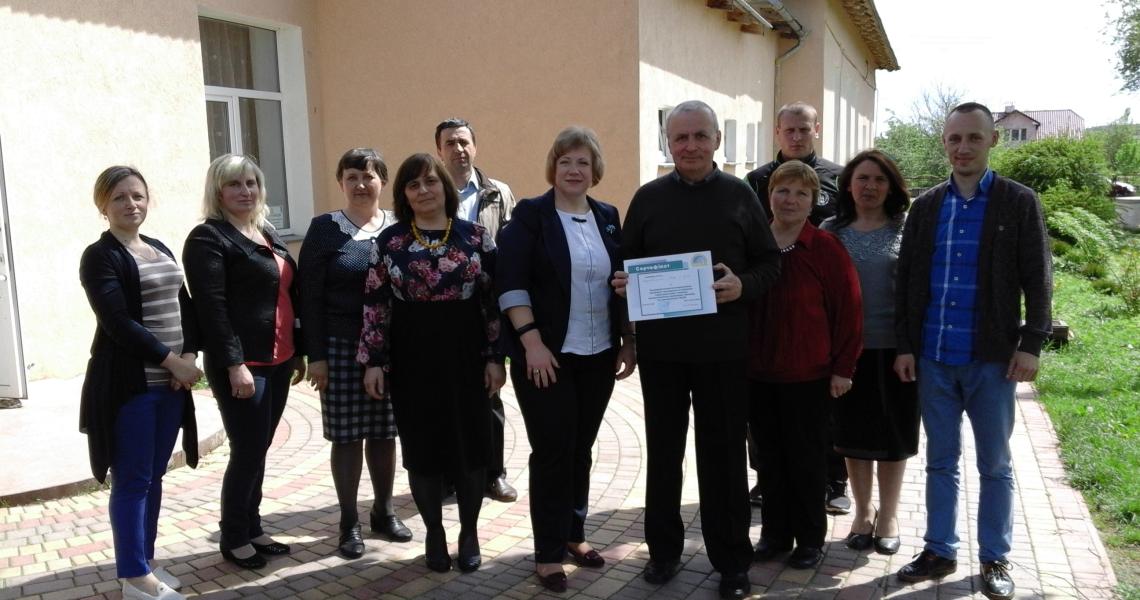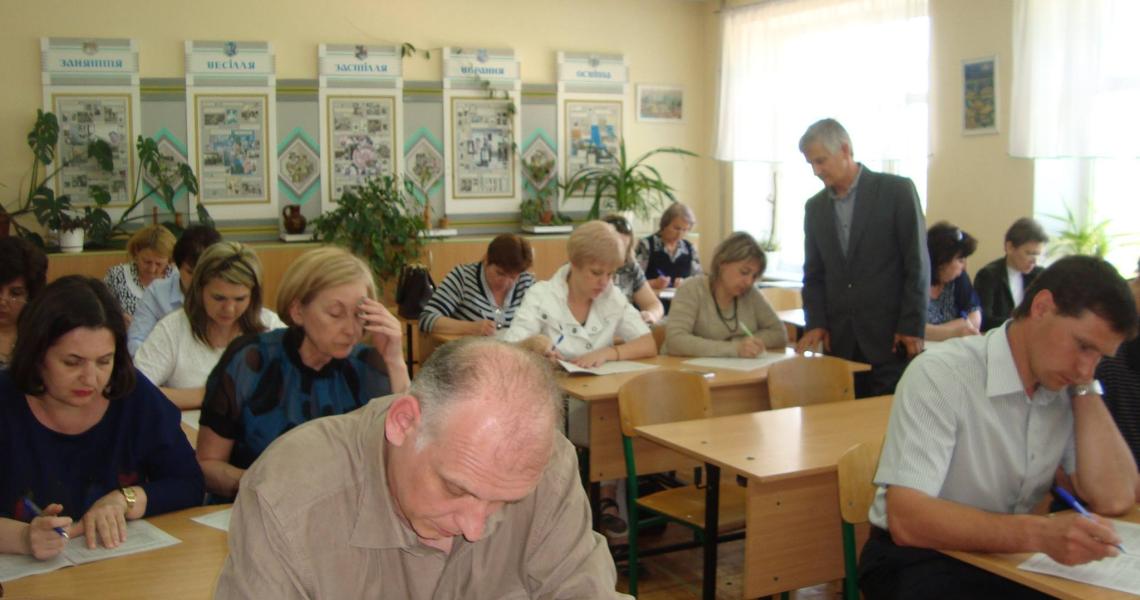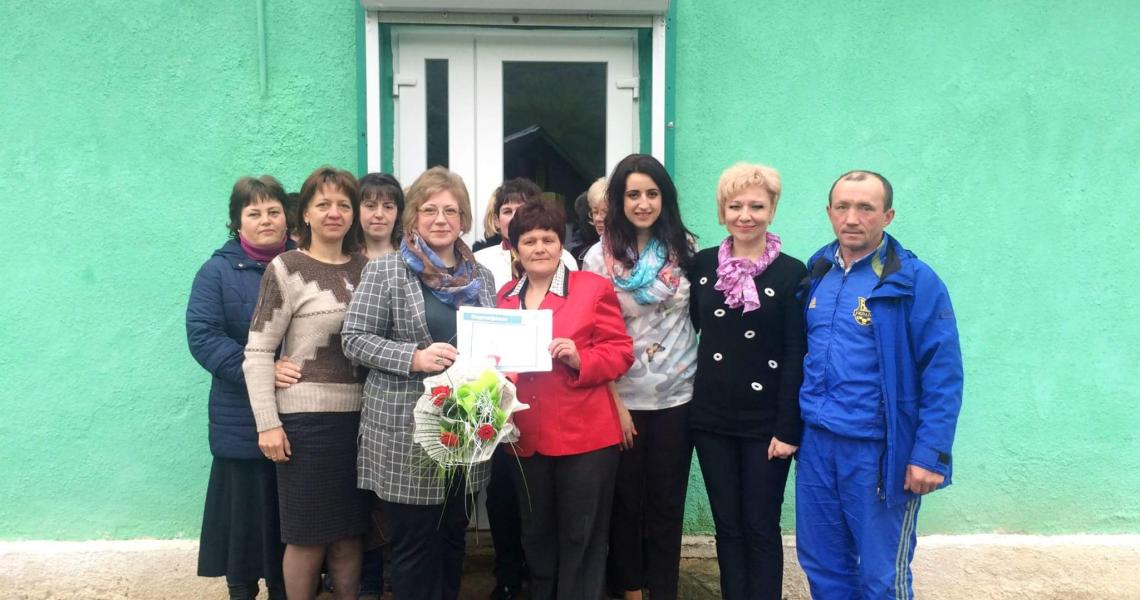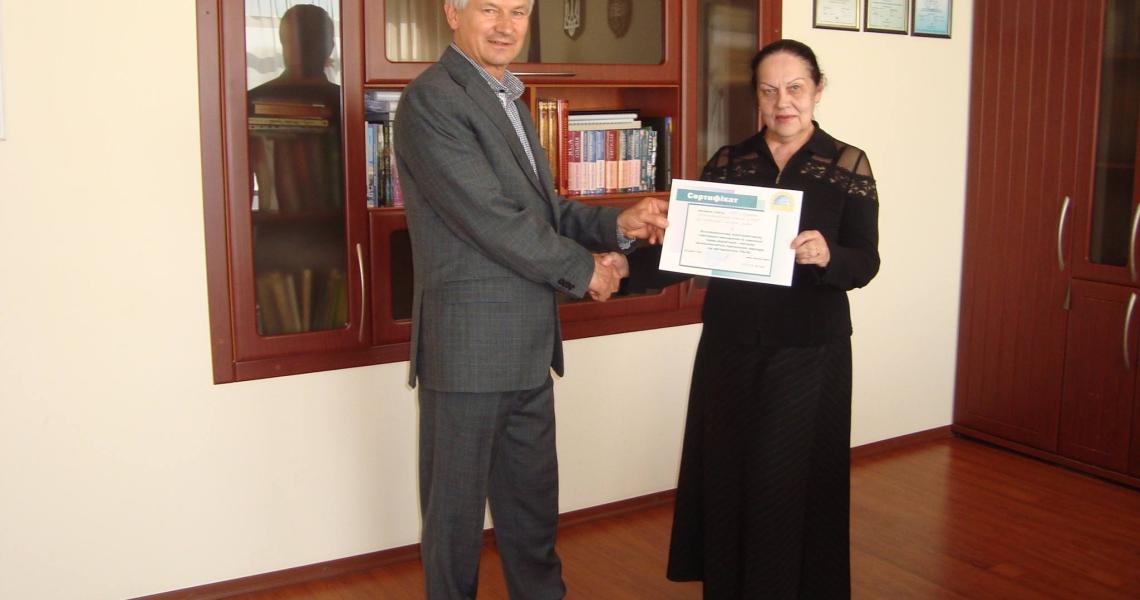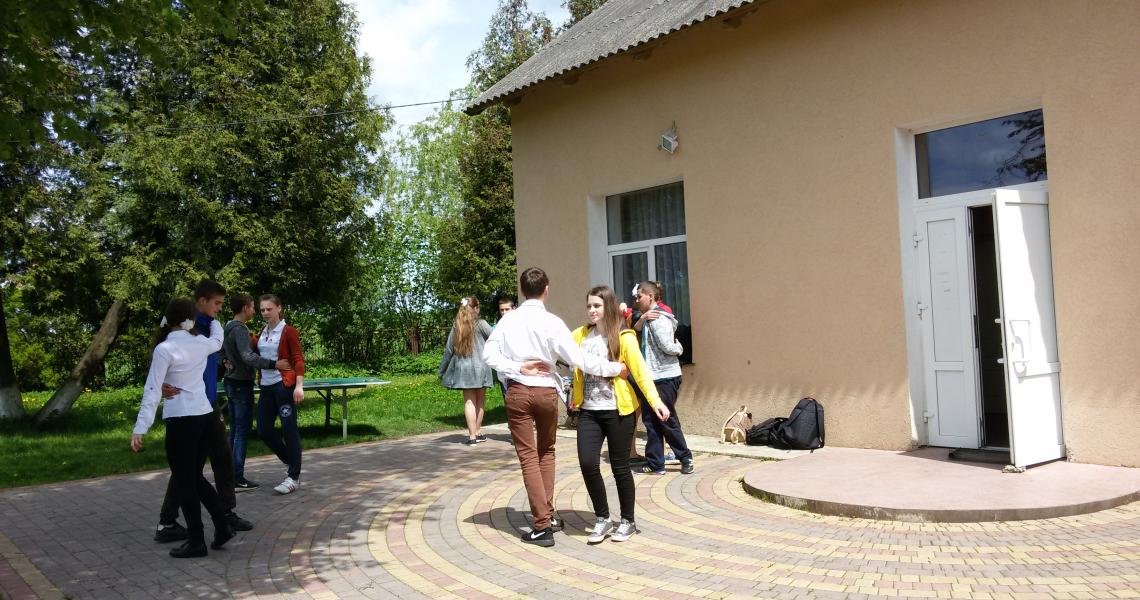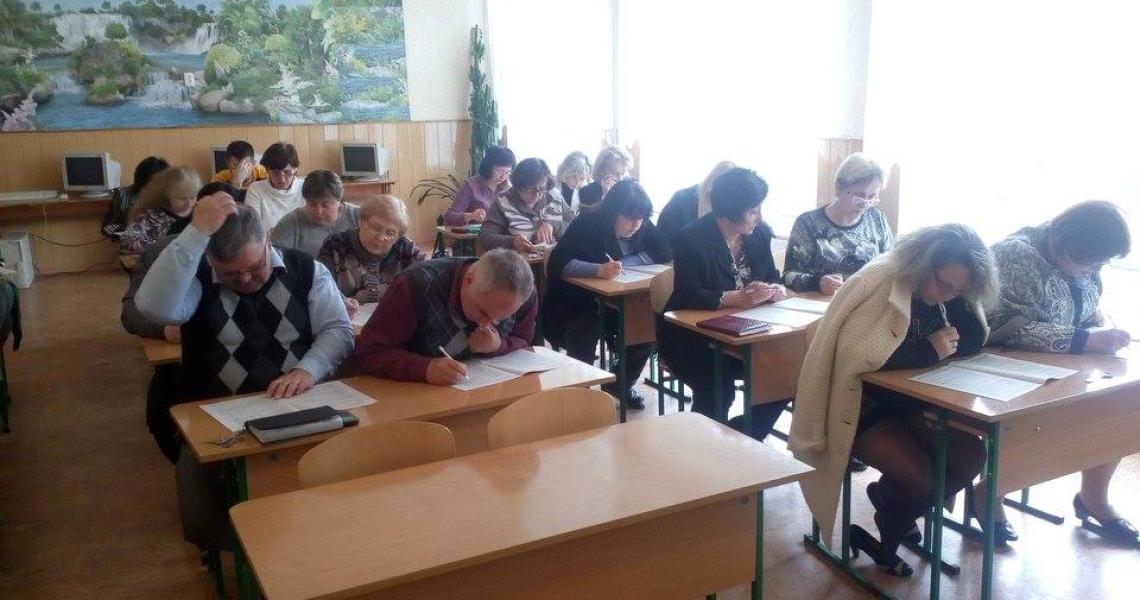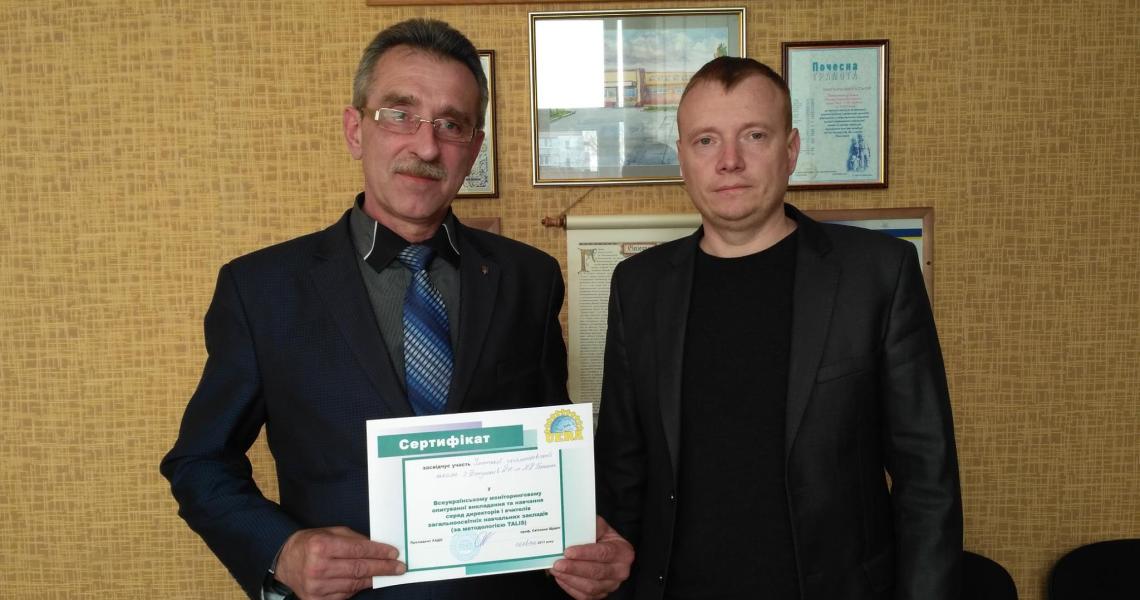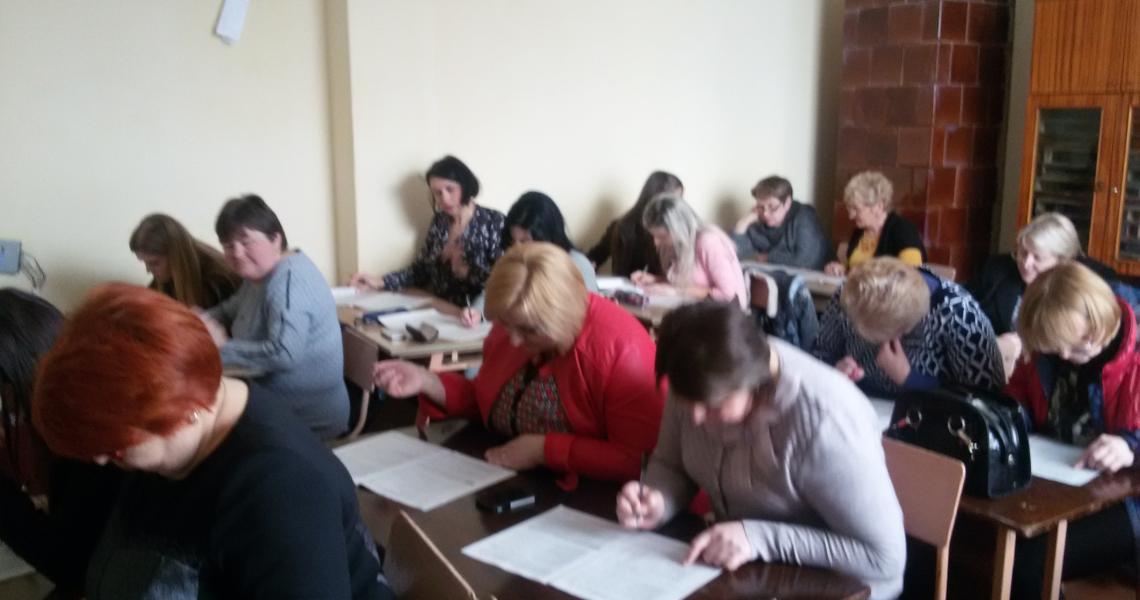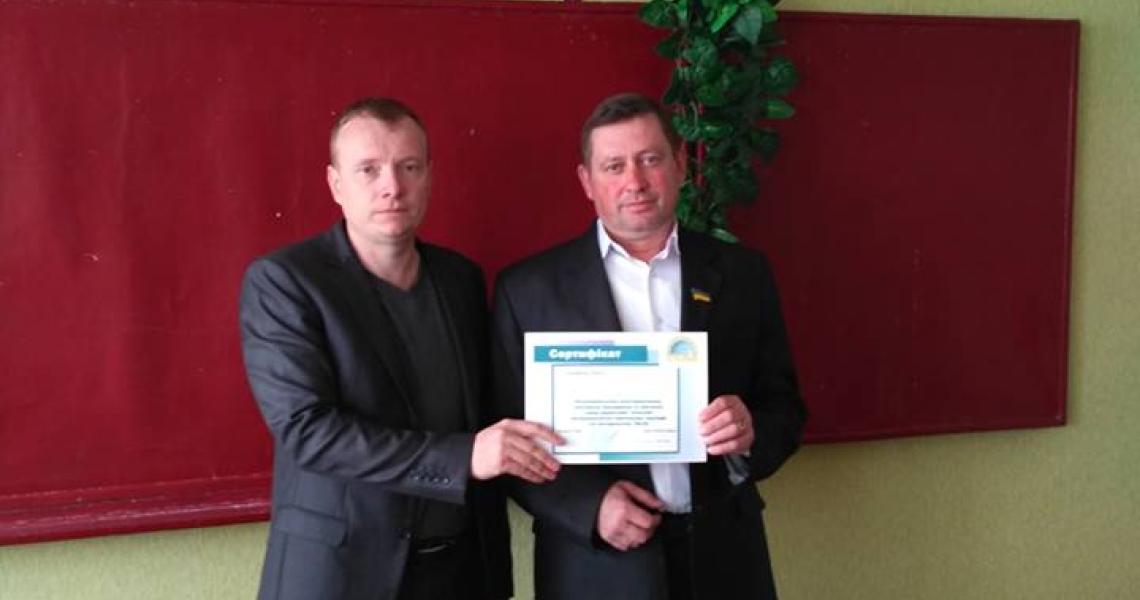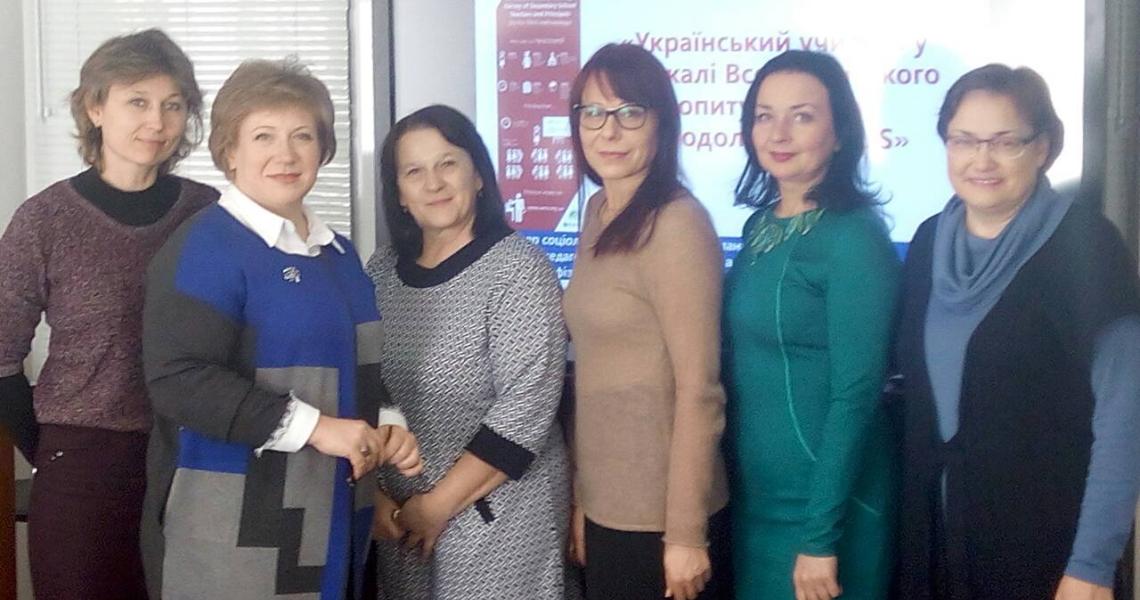Building Bridges to Break Stereotypes and Prejudices
In Ukraine, the language issue has been very problematic for quite a long time and it has led to a lot of emotional discussions. That is why the idea of the bridges and the dialogue is essential as it might help to focus on the ways to overcome the conflict rather than incite hatred.
Ukrainian Educational Research Association received a GCE-HSG Research Dissemination Grant: Borderland Studies in Eastern Europe and the Black Sea Region and in September - October 2021 realised the project "Building Bridges to Break Stereotypes and Prejudices".
The Project addresses the issues of fundamental rights seen through the eyes of the intercultural community with the focus on comprehensive policies in protecting minorities at the borderlands (especially in the sites of their compact residence).
The rationale behind the project lays in the situation in Ukraine that emerged after accepting Article 7 of Ukrainian law “On Education” that states that “the language of the educational process at institutions of education is the state language”. It caused some tension on behalf of the Romanian minority in the Chernivtsi region, who claimed that it significantly violates the fundamental right of the national minority to receive education in their mother tongue.
In the two UERA projects addressing the issue, the interdisciplinary group of experts have conducted 70 in-depth interviews, 6 focus groups and 4 roundtables with Romanian minority representatives and Ukrainians who reside at the borderland territories (high school students, teachers, principals, parents, educational authority representatives). Also, the team have made an analysis of printed and social media.
Among other issues the UERA team noted some stereotypes that are common among the borderland community. Some of them are: (1). Romanian minority representatives in Ukraine do not speak Ukrainian. (2). All young Romanian minority representatives do not want to learn Ukrainian as they connect their further life strategies with working abroad. (3). Language Law ruins national minority schools. (4). It is impossible to speak Ukrainian (as state language) and Romanian (as mother tongue) equally well.
Thus, the UERA has conducted a series of four media bridges that brought together borderland community representatives (the people were selected from the database of the projects’ respondents). The open discussion (on zoom platform) was broadcast on Facebook and placed on Youtube, and thus reached different categories of audience and involved them in the discussion.
Each media bridge was devoted to breaking one stereotype. Each media bridge was followed by a post-release sent to different radio channels (in Ukrainian and Romanian). For each media bridge the team prepared infographics based on research findings (interviews, focus groups and media analysis) and a short presentation of two published books: “At the Educational crossroads: Dialogue with National Minorities in Chernivtsi and Zakarpattia Regions”(2020), “Sociocultural Discourse on the Language of Teaching National Minorities in Chernivtsi Region” (2019).
The Project team are Doctor of Sociology, Professor Svitlana Shchudlo (Drohobych), Candidate of Sociology (PhD), Assistant professor Tetiana Medina (Chernivtsi), Candidate of Political Sciences (PhD) Marin Gherman (Chernivtsi). the Project Coordinator – Doctor of Pedagogical Sciences, professor Oksana Zabolotna (Uman).
The Project Report.
Ukrainian Educational Research Association received a GCE-HSG Research Dissemination Grant: Borderland Studies in Eastern Europe and the Black Sea Region and in September - October 2021 realised the project Building Bridges to Break Stereotypes and Prejudices.
The Project team conducted four media bridges
Media Bridge 1. "Romanian minority representatives in Ukraine do not speak Ukrainian"
Infographics of the topic of Media Bridge 1
Media Bridge 2. «All young Romanian minority representatives do not want to learn Ukrainian as they connect their further life strategies with working abroad».
Infographics on the topic of Media Bridge 2
Media Bridge 3. Language Law ruins national minority schools
Infographics on the topic of Media Bridge 3
Media Bridge 4. It is impossible to speak Ukrainian (as state language) and Romanian (as mother tongue) equally well
Infographics in the topic of Media Bridge 4
Information about the Project and its results in the media
Article in the newspaper "Новий день" (New Day) in Ukrainian
Article in the newspaper "Новий день" in Romanian
Radio programme on Ukrainian Radio Bukovyna





